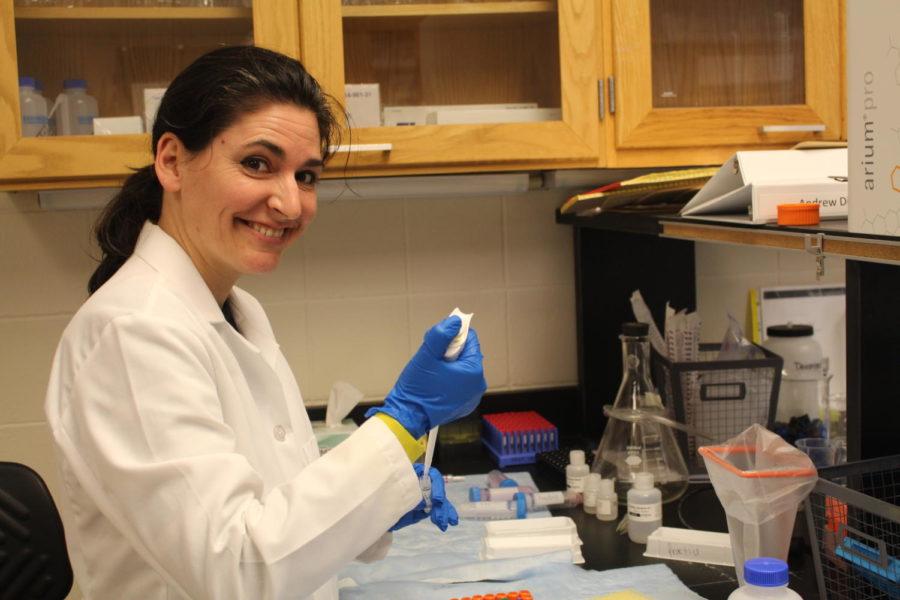Positive parenting affects the physiology of children, says Iowa State researchers
Professor Elizabeth Shirtcliff is studying the effects of positive parenting and how it impacts their children’s stress. She does this by measuring cortisol in peoples saliva to measure their stressed levels and compares it to what kind of parenting they have experienced.
March 8, 2017
Can your experiences change your physiology? One Iowa State researcher says it can.
Elizabeth Shirtcliff, an associate professor in human development and family studies, was a contributor to a study funded by the National Institute on Drug Abuse.
The study was focused on more than 300 eighth grade students from the Pacific Northwest. The goal of the research was to observe the effects of positive parenting towards the child.
As a biomarker expert, Shirtcliff played a key role in observing the cortisol levels in the children. Cortisol is often coined as the “stress hormone” responsible for maintaining homeostasis in the body.
Shirtcliff and the team conducted the research by observing the interactions between the children and their parents. The team visited the homes of these children and observed how they interacted with their parents.
A system of criteria for analysis which involved observing for social cues between the parent and child was crucial to remain as objective as possible.
“There were varieties of measure. We looked for things like smiling, eye contact and other social cues,” said Shirtcliff.
The findings of the research revealed that parenting did indeed affect cortisol levels. The team observed high cortisol levels in children that were raised through positive parenting.
The stress hormone is generally associated with health challenges like weight gain and mood changes. Hence as perceived to stimulate problematic health outcomes, Shirtcliff outlined that the stress hormone has the potential to cause positive effects as well.
“For a while, we have thought of cortisol as a bad thing,” said Shirtcliff. “But we now know that elevation of cortisol can translate as an openness to interaction.”
Shirtcliff explained that as much as parenting style may differ across different parts of the world, it is wise to look out for negative parenting like maltreatment, abuse or neglect. She warns such treatments may result to some physiological effects.
As a mother, Shirtcliff is aware of the difficulties that comes with raising children.
“Sometimes I’m a positive parent, and other times I’m not. But staying positive with the child is a great benefit for them,” said Shirtcliff. “We have observed that negative treatments with these kids can cause some problems.
One of those problems was earlier puberty, as well as aging at the cellular level in children that were raised through negative parenting.
Part of the study conducted on the 300 eighth graders from the Pacific Northwest revealed other findings such as co-regulation of cortisol between connected individuals (parent and child).
For Shirtcliff, discovering co-regulated levels of cortisol between the connected parent and child, remains a mystery that will require further observation.
















